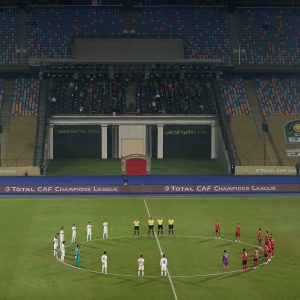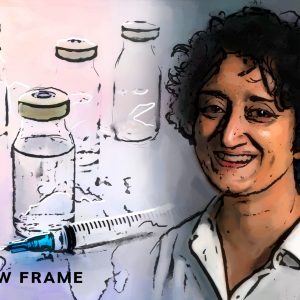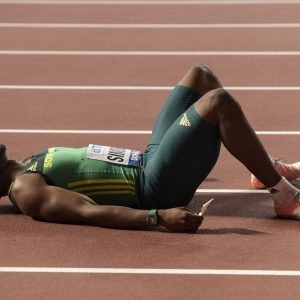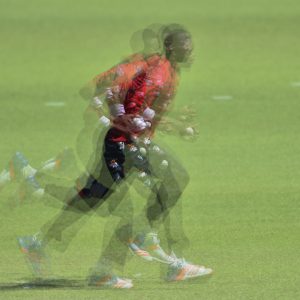Vaccine inequality and the Olympic Games
Equality is one of the values of the Olympics. But athletes from developing countries will be marginalised should the Games go ahead this year, because of unequal vaccine rollouts.
Author:
5 February 2021
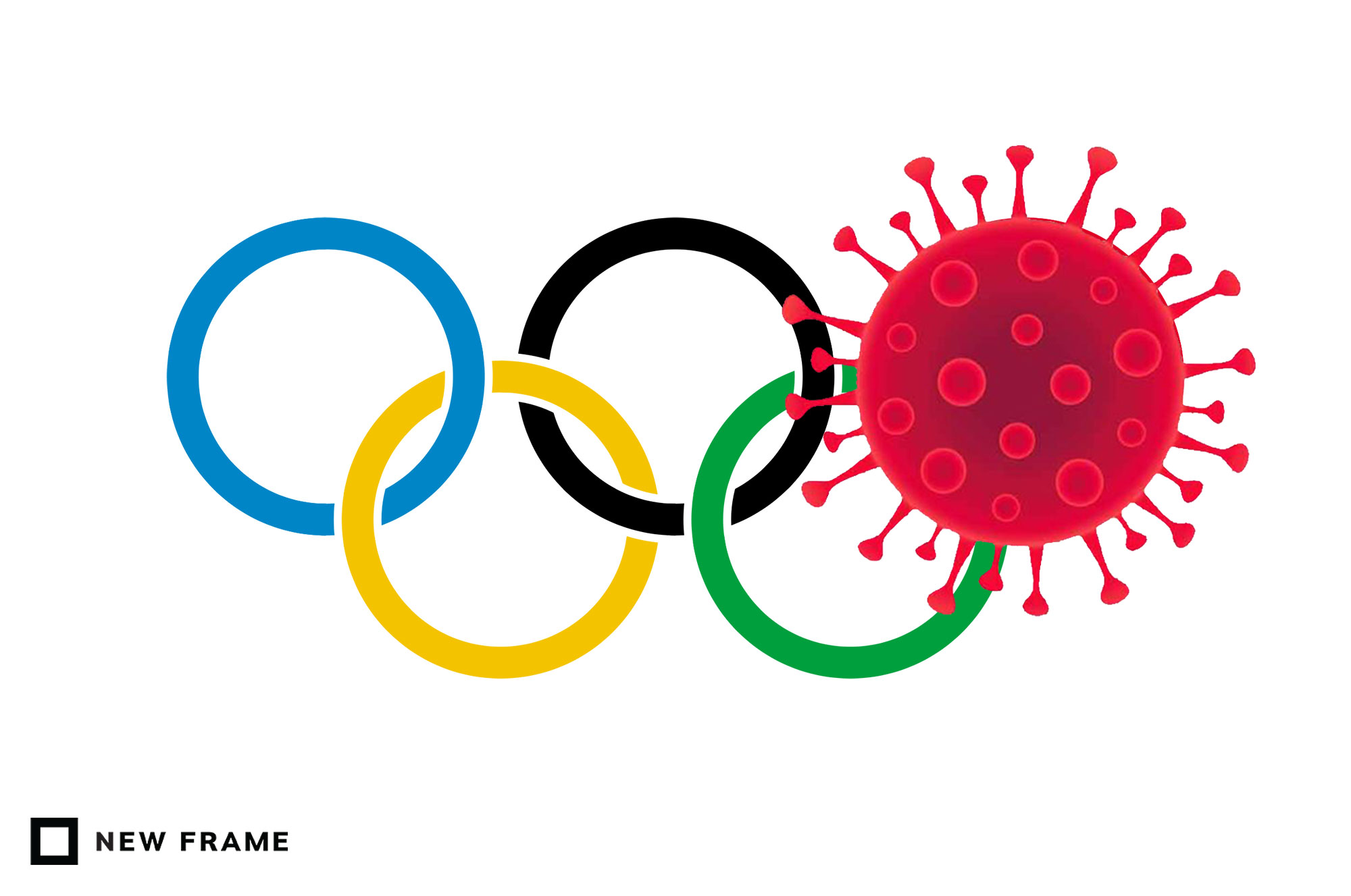
Speculation is rife that the Tokyo Games are doomed to be relegated to the dustbin of history despite the International Olympic Committee’s (IOC) assertion that they will go ahead as planned from 23 July 2021.
The IOC and host nation Japan are in a precarious position, facing a decision requiring Solomon’s wisdom as they weigh up the potentially colossal financial loss against human health and safety. Some sporting codes and leagues have found a way to safely host competitions – albeit without spectators and within a so-called bio bubble – since the start of the pandemic.
But the Olympic Games are on a scale unlike any other sporting event. They are expected to attract more than 11 000 athletes from 206 nations, while 80 000 volunteers have been recruited to support athletes, spectators and the media. Even if the competition were to be held without spectators, it would require a modern-day miracle to control the spread of the coronavirus.
Related article:
“The concept of one weak link in the chain is so true in this, you can take all the precautions in the world and you just have one person take their mask off to sneeze, which people do, and it could cause a problem,” says sports and exercise physician Demitri Constantinou, who is affiliated with the Centre for Exercise Science and Sports Medicine at the University of the Witwatersrand.
“Tokyo 2020, which is due to be held in 2021, will not be a normal Olympic Games if they take place at all. I don’t see them taking place, quite honestly. The real casualty is going to be a financial one, and they will have to accept that.”
A potential superspreader event
Conducting the Olympic symphony is complicated at the best of times. The athlete’s village resembles an international airport as competitors play musical chairs, arriving and leaving according to their event. It is a hive of activity, with athletes moving between the dining hall and their rooms. Then there is the daily movement in and out of the village to training and competition venues. The logistics behind all this movement of people involves bus drivers, security guards, cleaning and cooking staff, and officials.
Constantinou, who has been a team physician at the Olympic Games and the Paralympic Games, says it is this hive of activity that would make it extremely difficult to host the multisport event in a way that would ensure the safety of all involved.
“Even in what one would think would be an easy environment to control in a bio bubble has not succeeded,” he says, referring to the recent England cricket tour to South Africa being called off after breaches of the bio-secure environment.
“Multiply that many times with many more athletes, many more people involved, spectators, the bus driver taking the athletes to the different venues … Other than the spectators, the people involved in the logistics of the Olympics Games is also huge. The volunteers, cleaning staff and all those kinds of things. To try and create a bio bubble is, quite frankly, impossible.”
Related article:
Triathlon and distance running coach Lindsey Parry shares Constantinou’s scepticism. “We can talk about all the other stuff, but there is no way that the Olympics will not turn into an enormous superspreader event with people coming from all over the world and the people going back,” says Parry, who led South Africa’s triathlon teams at the London 2012 and Rio 2016 Games.
“There are still upwards of 10 000 people from all over the world and congregating in one place.”
Vaccines – if used in tandem with other public-health measures – offer a glimmer of hope that the Games could go ahead in some shape or form. Rich nations have already begun administering vaccines, with developing countries hoping to get shots into the arms of a sizable part of their populations over the course of this year.
Vaccine inequality
According to the Our World in Data website, more than 50 countries have rolled out immunisation programmes. Seychelles was the first African country to initiate a Covid-19 vaccine programme and has administered more than 19 000 jabs since the second week of January. South Africa received its first shipment of vaccines on 1 February.
Although the vaccine rollout has been slow globally and the developing world is again at the back of the queue, the IOC seems to have pegged its hope on vaccinations to save the Tokyo Games. It has developed a “toolbox of Covid-19 countermeasures, which includes immigration procedures, quarantine measures, testing, personal protective equipment, contact tracing and also vaccinations.
“Vaccines are one of many tools available in the toolbox, to be used at the appropriate time and in the appropriate way,” the Olympic governing body said on 26 January. “The IOC continues to strongly support the priority of vaccinating vulnerable groups, nurses, medical doctors and everyone who is keeping our societies safe.”
Despite that, IOC president Thomas Bach reiterated that “vaccination will not be obligatory” for athletes to compete in Tokyo.
Related article:
The reality is that athletes from rich countries with easier access to vaccines would be at an advantage. The sooner nations reach community immunity, the sooner their societies can open up, allowing athletes to return to full training and prepare for the Olympics.
It is quite possible that only athletes from wealthy nations could make it to the Olympics or attend the Games unencumbered by strict measures to curb the spread of the virus. In the build-up, athletes would need to find a certain level of form and compete to qualify for the Games. Again, this would favour athletes from developed nations and those able to travel to competitions.
Ideally, the IOC would prefer a large percentage of the participating athletes to be immunised, which would reduce the number of resources that would have to be dedicated to “tools” such as contact tracing, testing and quarantine measures.
Constantinou questions if the vaccine would be the silver bullet, considering the rollout’s slow pace and its inequitable distribution. “Logistically, how do you ensure all the athletes are vaccinated? Then there are the other people, the support personnel, the volunteers, the drivers, the municipal services,” says Constantinou.
“You would have to ensure that it is equitable, so they get the vaccine at the right time. If it is a two-dose vaccine, that they get the second one at the right time and they build immunity in time. If that is your approach, then you want them to all arrive vaccinated with an immune response. To achieve that would be exceptionally difficult.”
How Covid-19 affects athletes
There is also the question of whether or not it would be ethical to allow perfectly healthy individuals that are generally part of the low-risk population to jump the vaccination queue. Again, Bach made it clear that the Olympic movement was guided by the principle that “vaccination priority should be given to vulnerable groups, nurses, medical doctors and everyone who is keeping our societies safe”.
The average Olympian is 27 years old and, coupled with a healthy lifestyle, generally at a lower risk of developing severe complications from coronavirus pneumonia. It is nearly a year since the Tokyo 2020 Olympic Games were postponed owing to the pandemic and the world is slowly but surely getting to understand the impact of the virus on the human body. There remains a dearth of knowledge about the disease’s long-term effects after recovery.
But a team of doctors and sports scientists led by sports physician Martin Schwellnus is plotting the effects of the virus on athletes post-recovery, which will help with treatment and developing safe return-to-training protocols.
Related article:
The Athletes with Acute Respiratory Infection, or Aware, research study in association with the IOC Research Centre of South Africa was established to study acute respiratory illnesses in athletes before the outbreak of Covid-19. The project also used data from the Sport, Exercise Medicine and Lifestyle Institute at the University of Pretoria’s Covid-19 recovery clinic for athletes.
Schwellnus says their research has shown that athletes are like any other individual with Covid-19, in that they presented a wide variety of symptoms and severity of illness. In the asymptomatic group, the effects were negligible and did not impact on their ability to return to training.
A full assessment is done on the athletes – including a cardiac MRI – to see which organs in the body are particularly at risk from Covid-19. Schwellnus says they have seen evidence that the heart has been affected in some cases.
“At the other end of the spectrum is we do see even healthy young athletes with no other illnesses that develop a very severe form of Covid-19 with multiple symptoms,” says Schwellnus, who assessed and assisted more than 50 athletes at the clinic.
“What we are looking for at our Covid-19 clinic is multi-organ involvement, where multiple organs get affected by it. Although it is quite rare in athletes or young individuals, it does occur.”
Related article:
Schwellnus says a research paper about the study will be published in the next few weeks, which will feed into the IOC Medical Covid-19 repository that assists sports scientists with athlete care.
“The Olympic movement and the medical commission are monitoring all the research that comes out daily and, where appropriate, the results of these research papers do get taken into account in the decision-making,” he says.
Phatho Zondi, who chairs the South African Sports Confederation and Olympic Committee’s medical advisory commission, says she is confident the IOC and the local organising committee would not allow the Games to continue if they could not ensure the safety of athletes.
“The IOC would first have to be satisfied that there is enough evidence that global public health interventions have succeeded in reducing the risk or the threat of Covid-19,” says Zondi, who is the South African team’s chief medical officer for the Tokyo Games.
“There needs to be evidence that morbidity and mortality have started to reduce. The second thing they need to be satisfied is that restrictions have been lifted in most countries so that athletes can prepare.”

